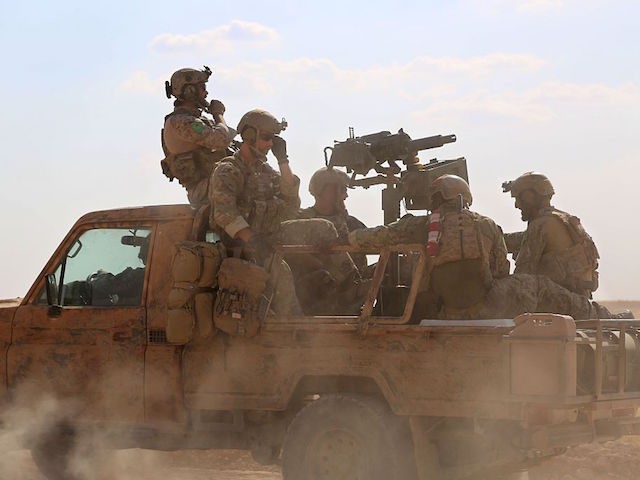WASHINGTON – Senators at a hearing on Thursday said special operations forces have focused on counterterrorism for the past fifteen years, but will now also need to be prepared for “gray zone” conflicts that fall short of the formal definitions of war.
“While the last 15 years of special operations deployments have been primarily focused on countering violent extremists groups, there is growing realization that special operations forces, and the unique skill sets that they possess, may be called upon for other missions as well,” Senate Armed Services Committee Ranking Member Jack Reed (D-RI).
States like China, Russia, Iran, and North Korea are becoming more aggressive in challenging U.S. interests and partners using asymmetric means that often fall below the threshold of conventional conflict, according to Senate Armed Services Committee Chairman John McCain (R-AZ).
“The ability of our special operators to conduct low visibility special operations in politically sensitive environments make them uniquely suited to counter the malign activities of our adversaries in this domain,” he said.
Chairman of the Joint Chiefs of Staff Marine Gen. Joseph Dunford said at a committee hearing last September that those activities included information operations, cyber capabilities, and unconventional warfare.
The prospect of those new missions come amid an already heavy reliance on special operations forces all over the world.
SOCOM Commander Army Gen. Tony Thomas said more than 8,000 special operators are deployed to more than 80 countries. Special operators are on the forefront of the fight against the Islamic State (ISIS) in Iraq and Syria, as well as extremists in Afghanistan.
Thomas said more than 100 U.S. special operations are in and around Mosul – ISIS’s stronghold in Iraq, with more than 600 more playing a support role farther back.
He cautioned against the idea that special operations forces alone could fix every problem and said they are meant to be used in conjunction with conventional forces.
“We’re not a panacea. We are not the ultimate solution for every problem, and you will not hear that coming from us. That’s been misconstrued in some immediate circles. Everything we are doing is in concert with conventional forces, with our allies completely integrated,” he said.
Thomas acknowledged this week that special operators are facing the same strains as other services regarding suicide but that it has made significant strides with its Preservation of the Family and Force program.
SOCOM has been in high demand since its founding 30 years ago.
It has already recently taken a major new step towards dealing with the asymmetric threats of chemical, biological, and nuclear warfare.
In January, it took over from U.S. Strategic Command the task of synchronizing the Pentagon’s efforts to counter weapons of mass destruction.
Not much is known about the new mission, which is still in its early phases. Thomas offered some details during the hearing Thursday and at a House Armed Services Committee hearing on Tuesday.
He said SOCOM held its first semiannual synchronization conference with extraordinary turnout, including from interagency and international partners. He said he also assigned a flag officer to the mission to emphasize the criticality of it.
“We’re very enthusiastic about pushing this mission set forward. We’re in the throes of rewriting the campaign plan, as well as conducting an assessment that I hope to provide our secretary in about the August timeframe,” he said Tuesday.

COMMENTS
Please let us know if you're having issues with commenting.